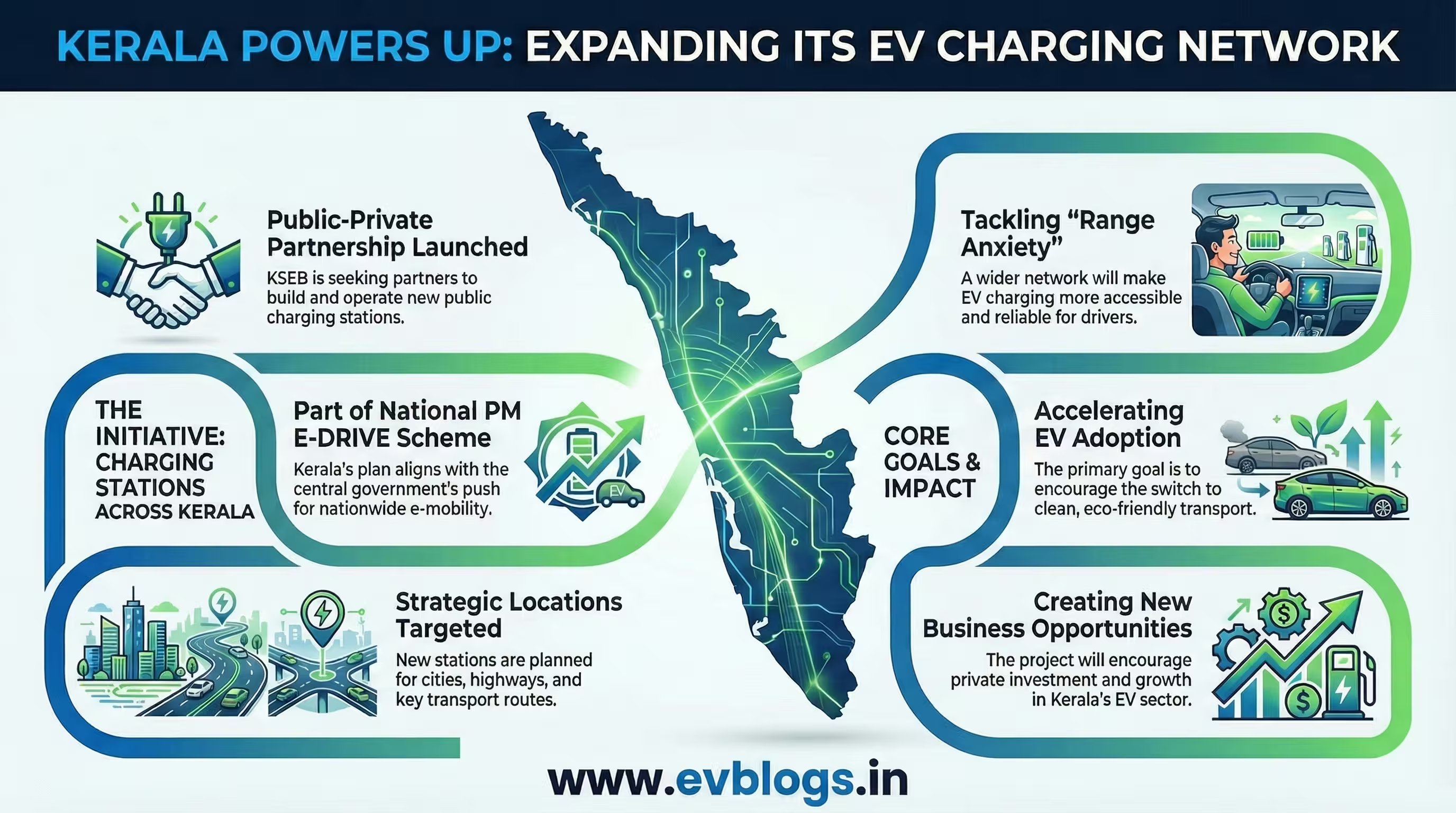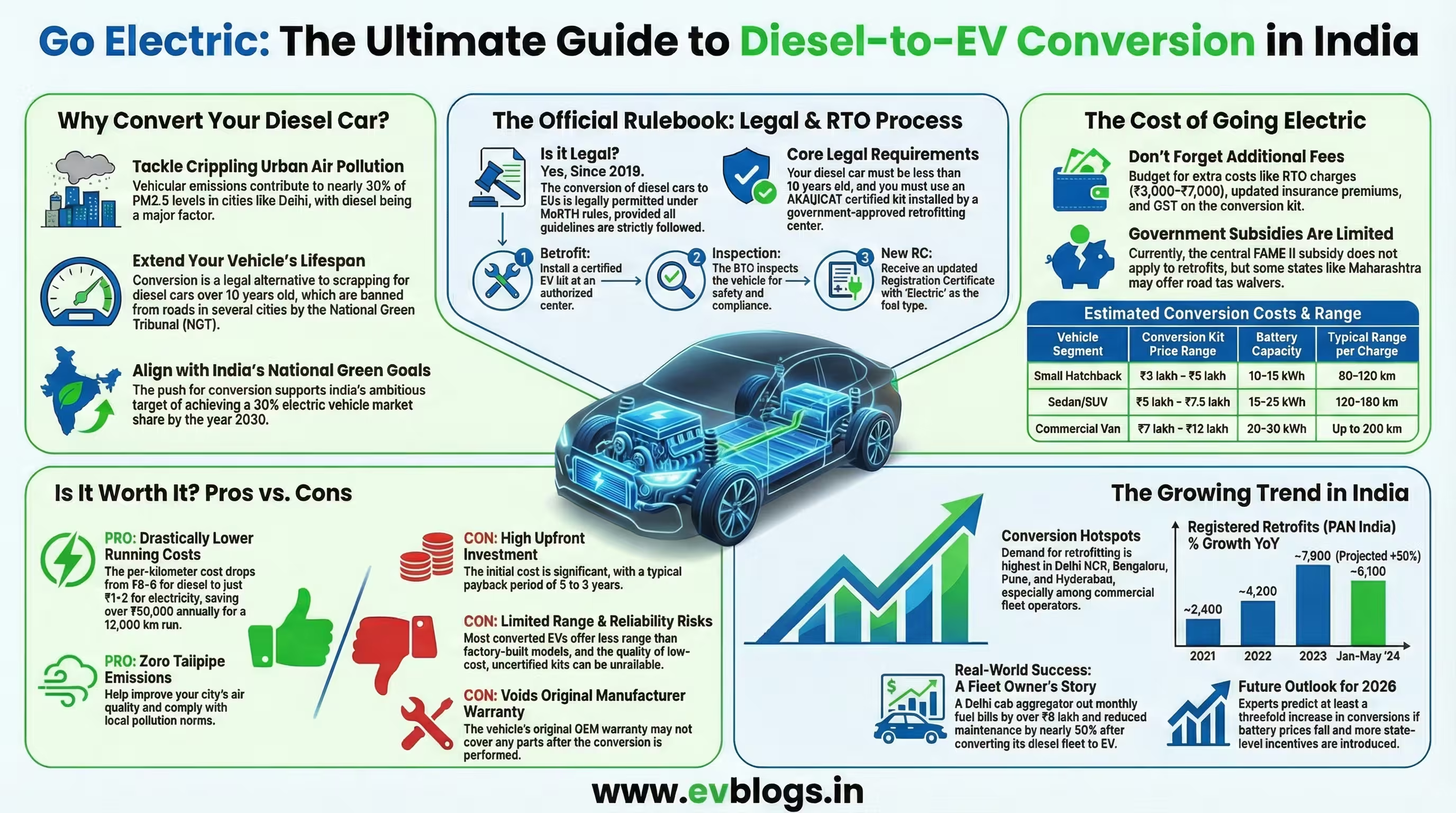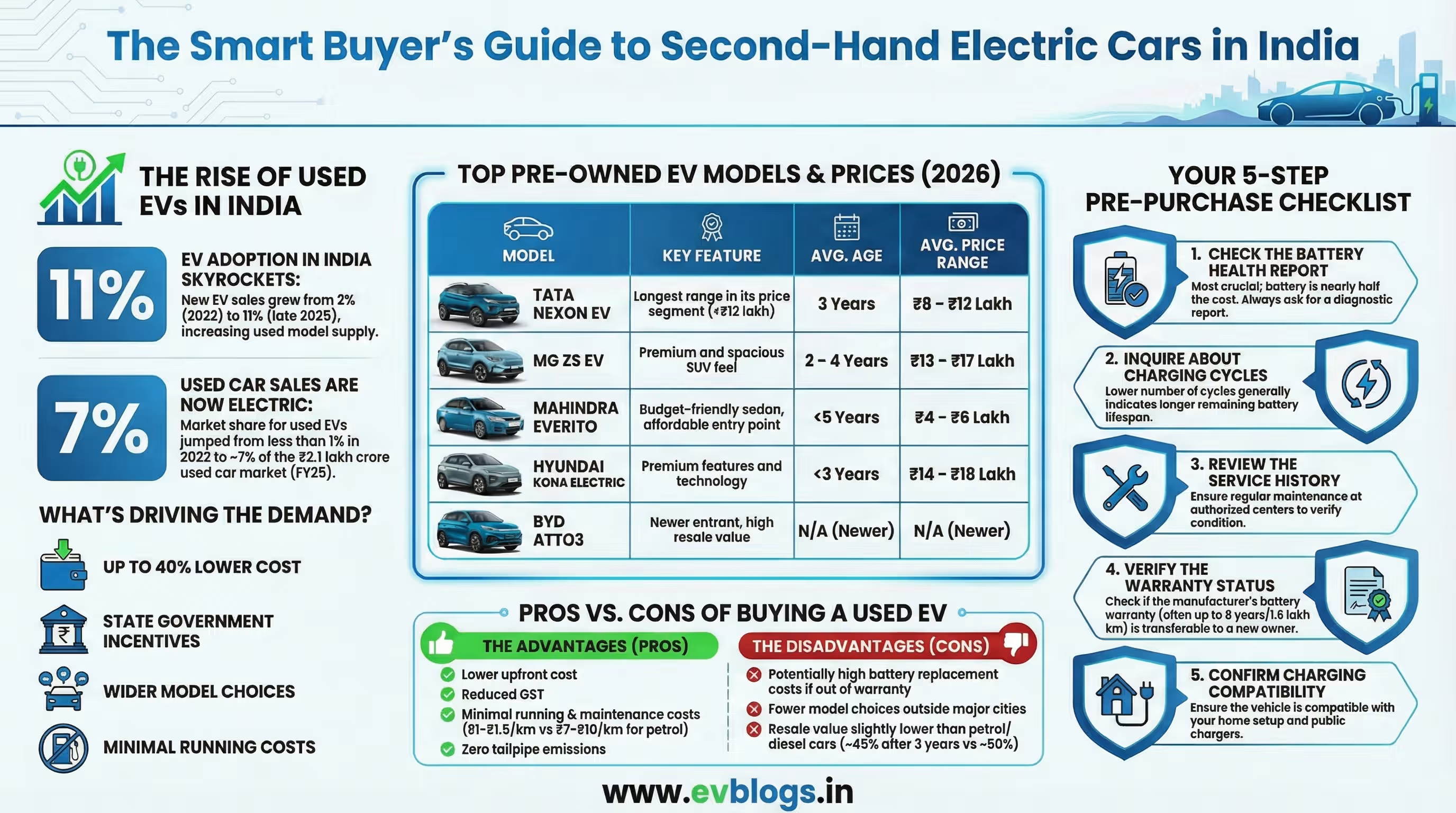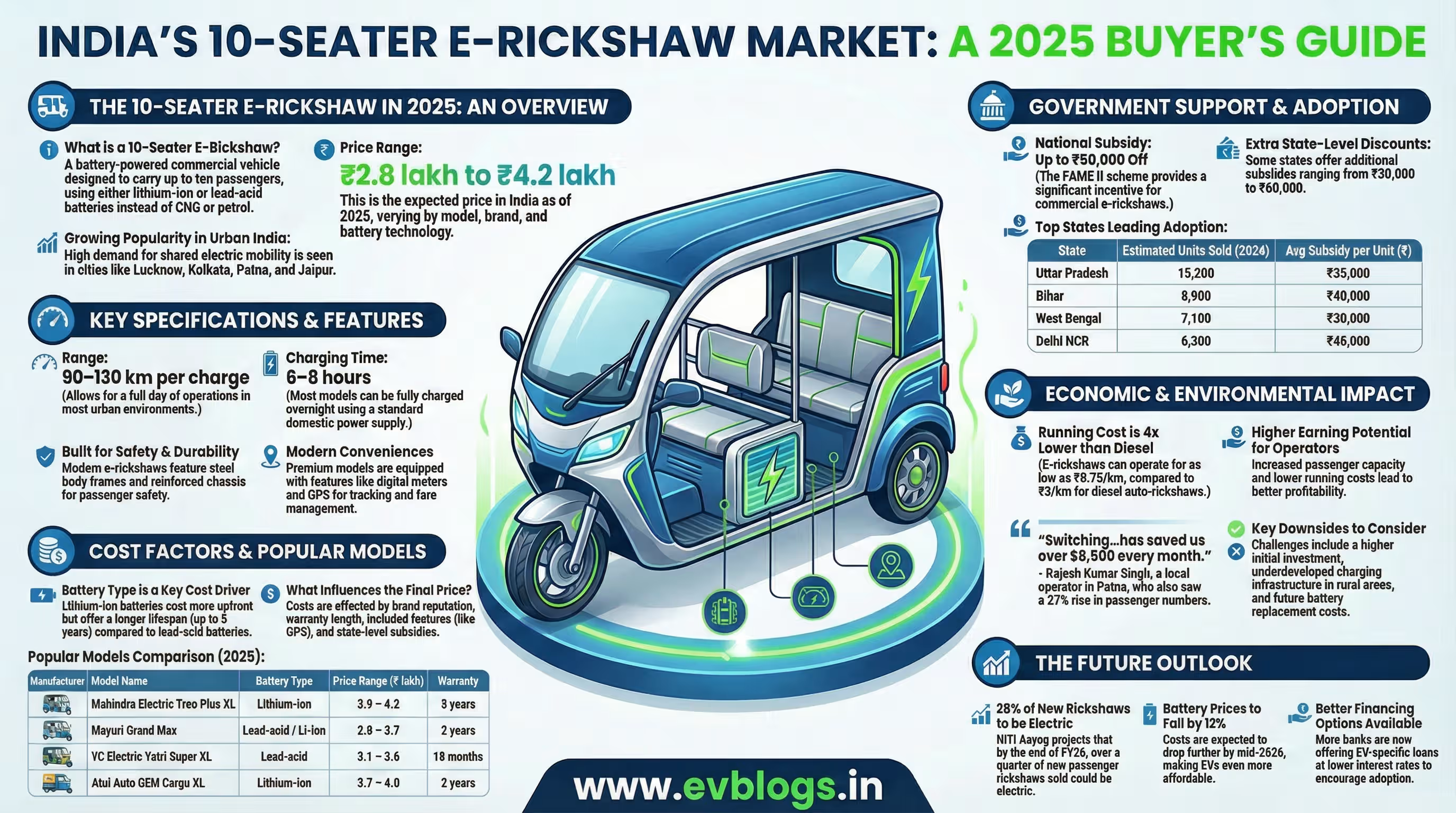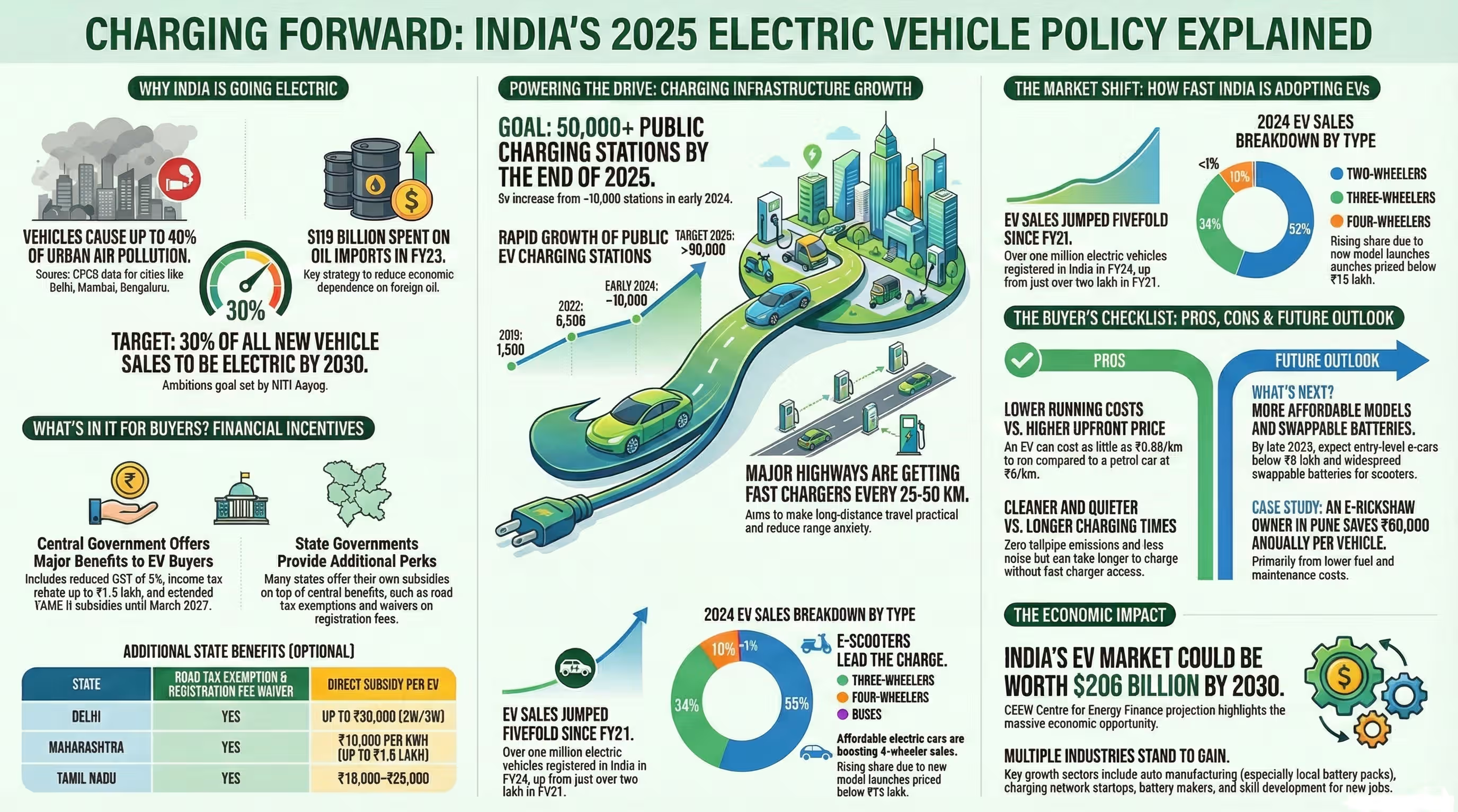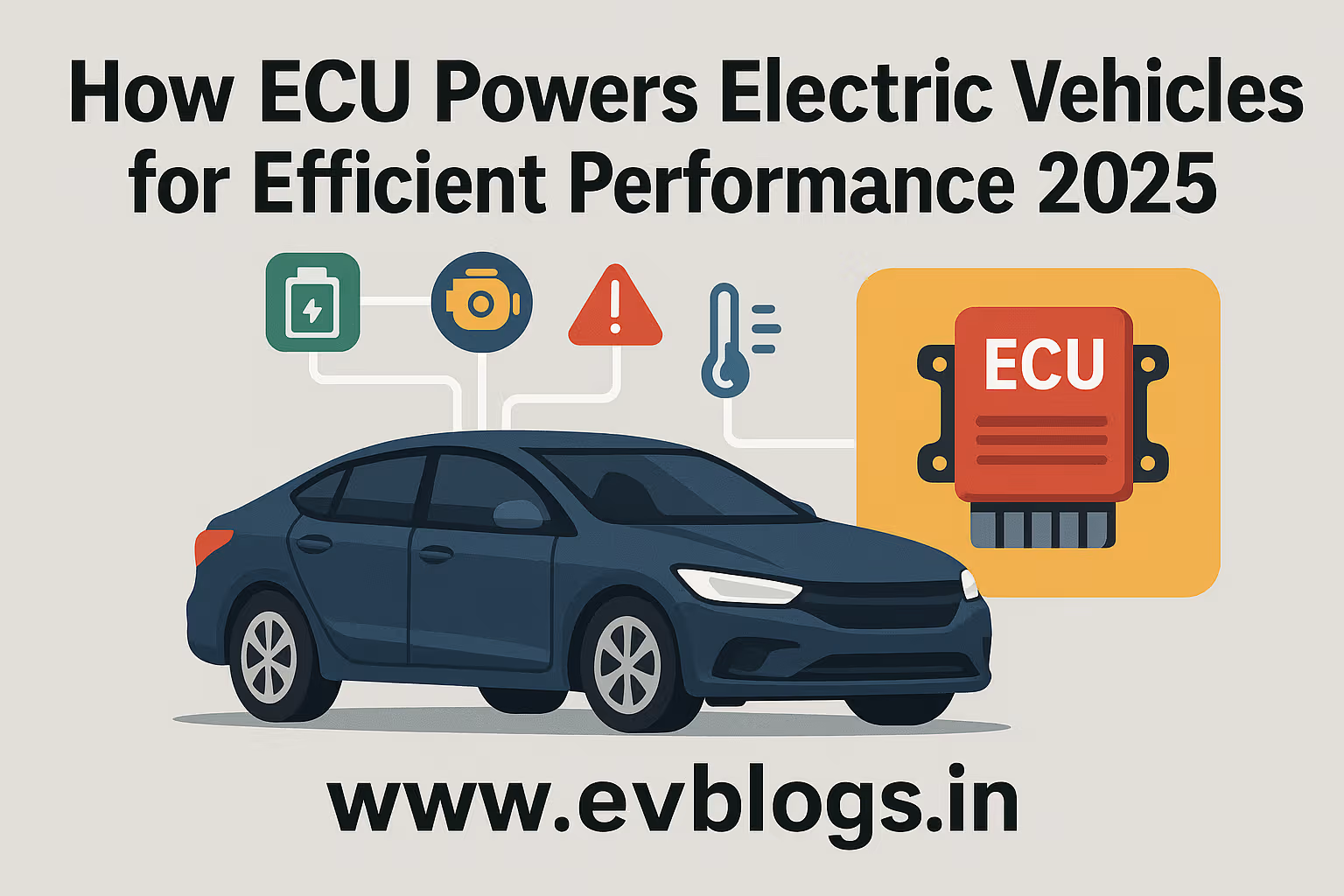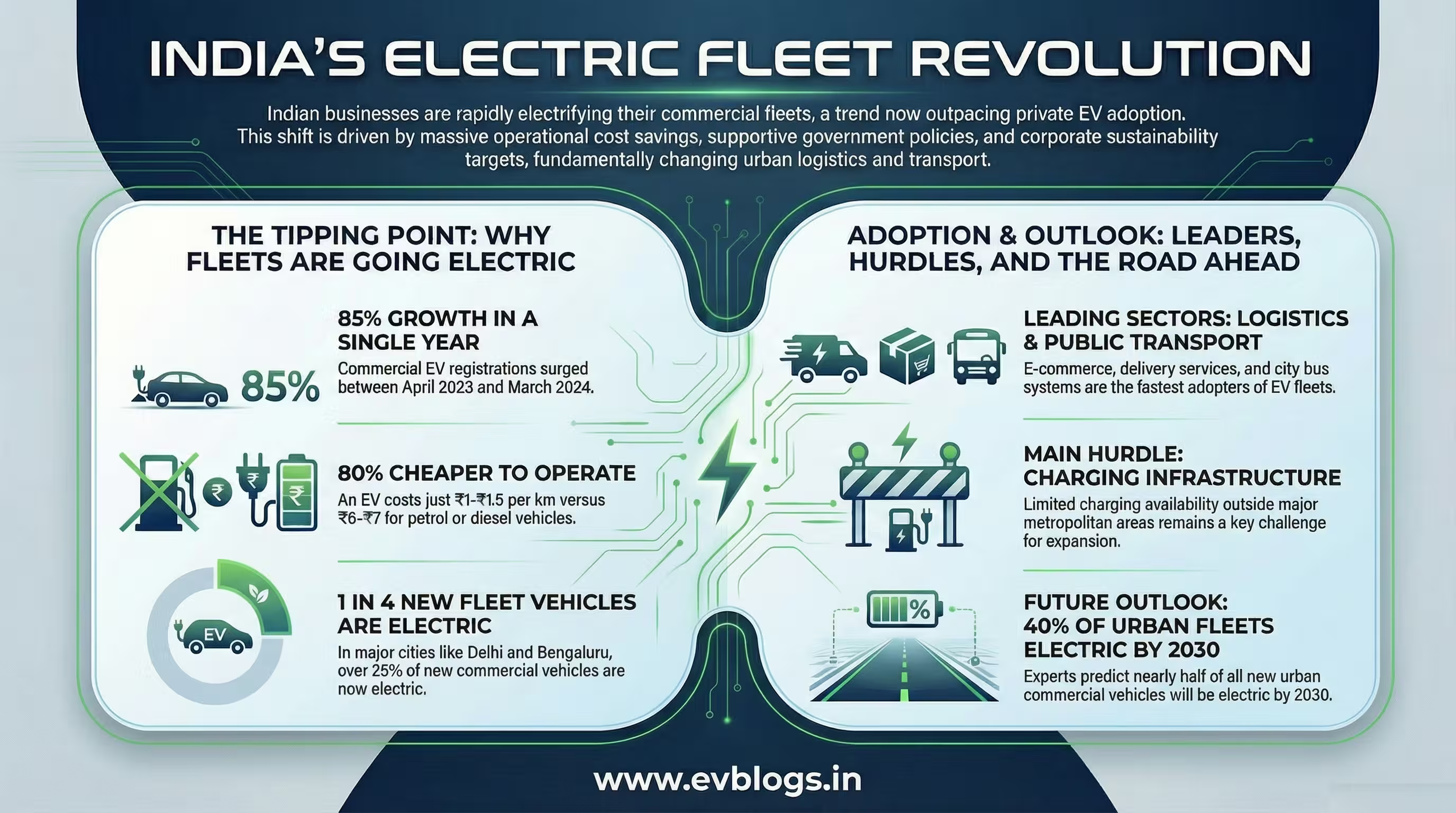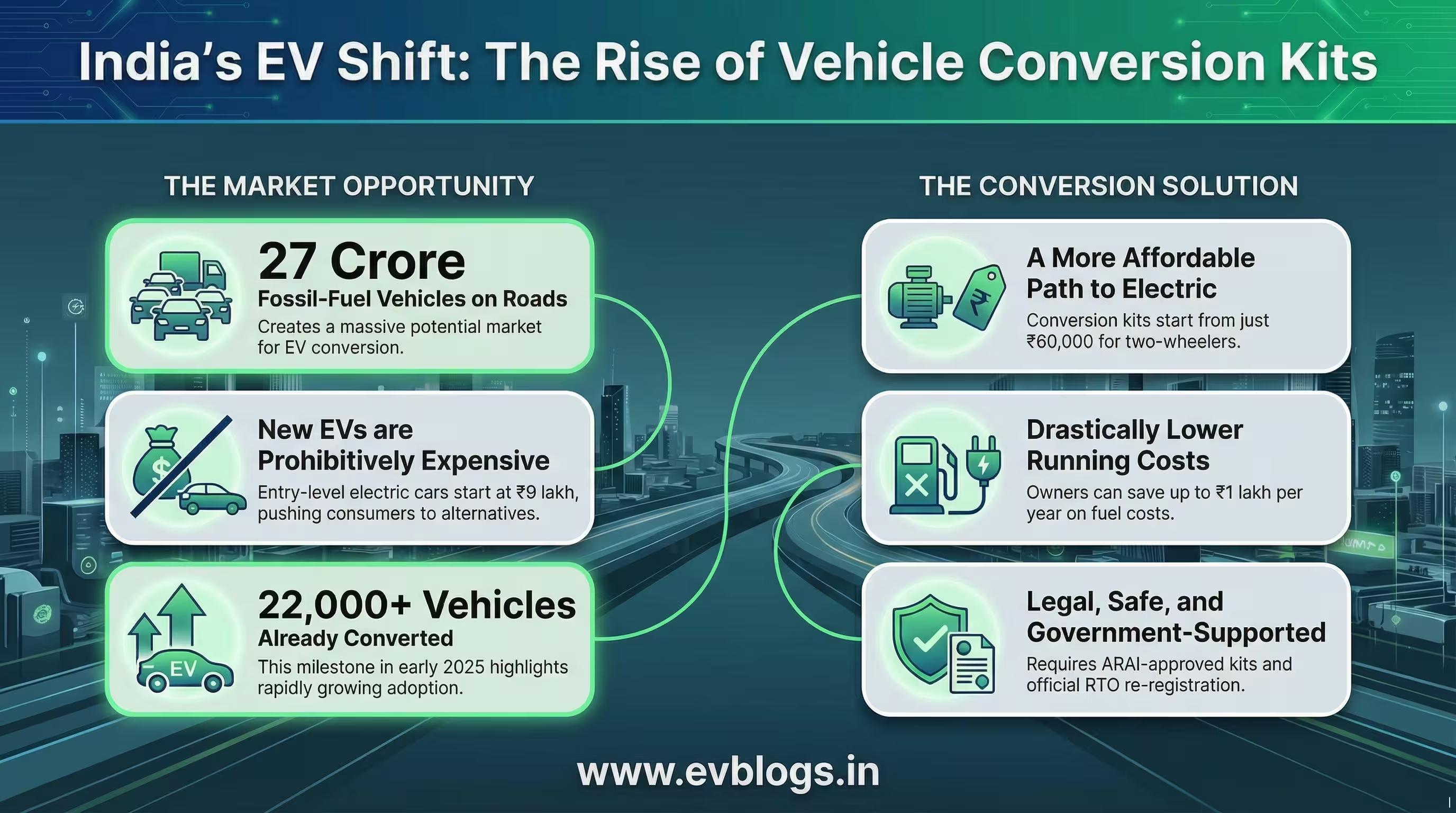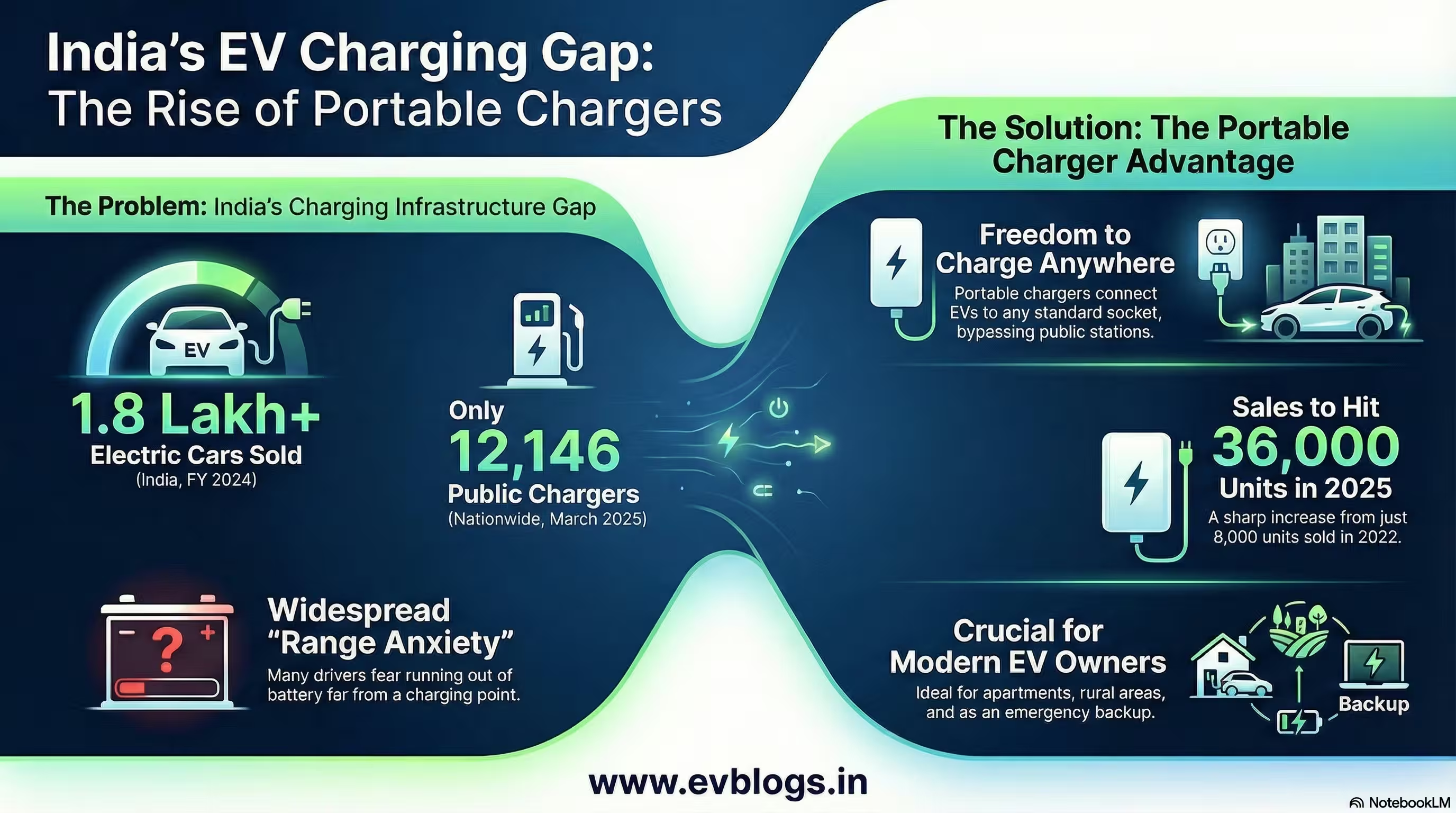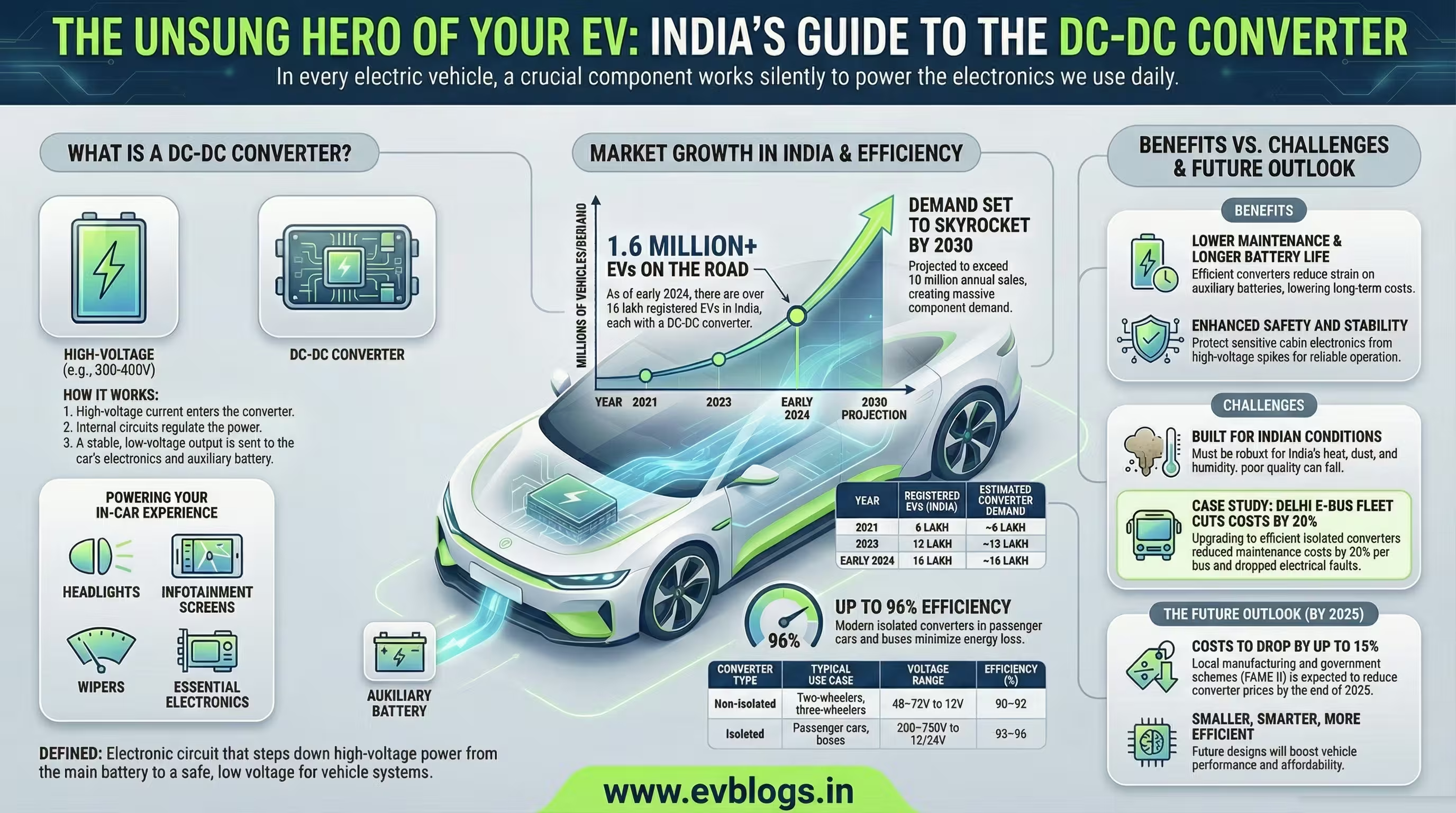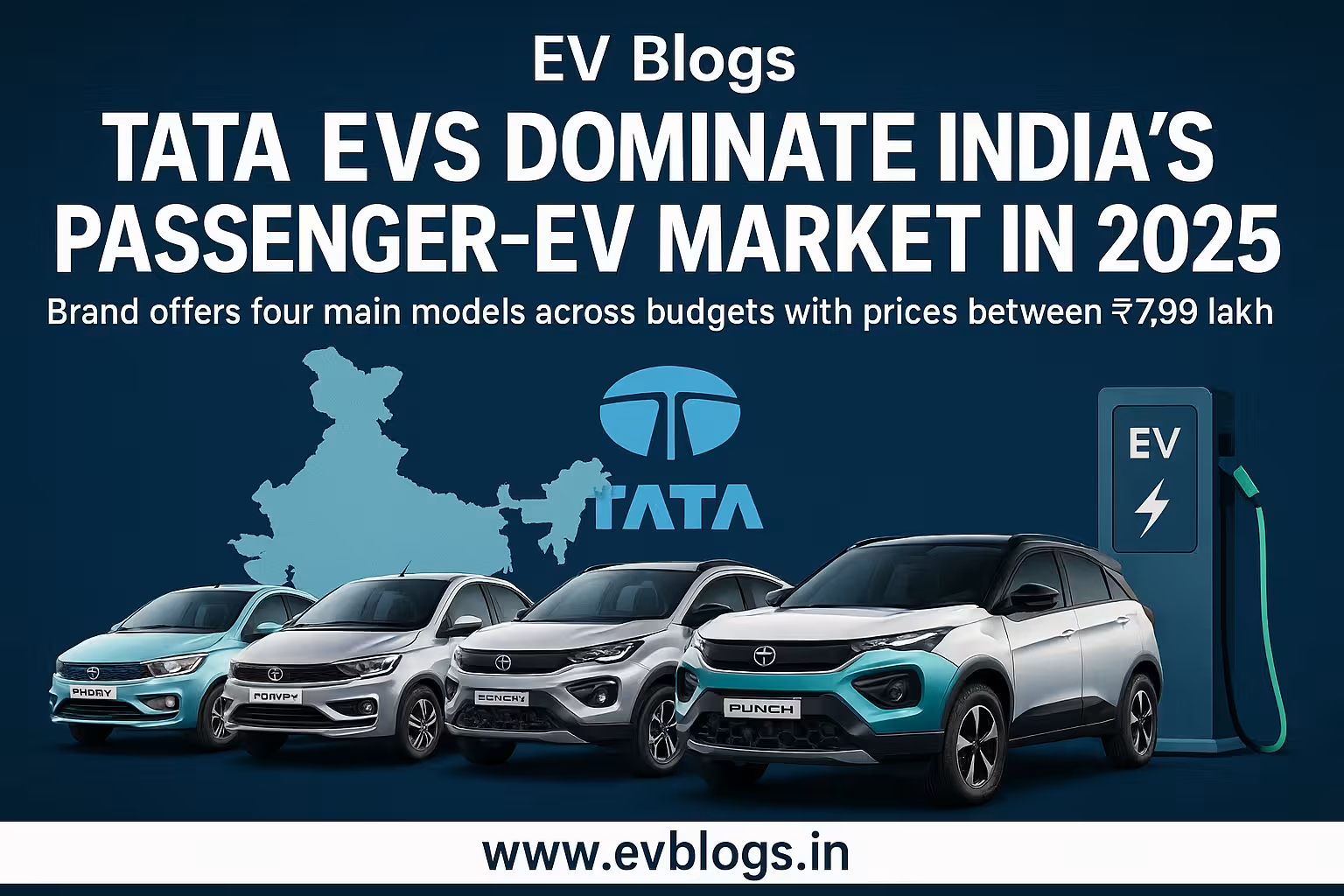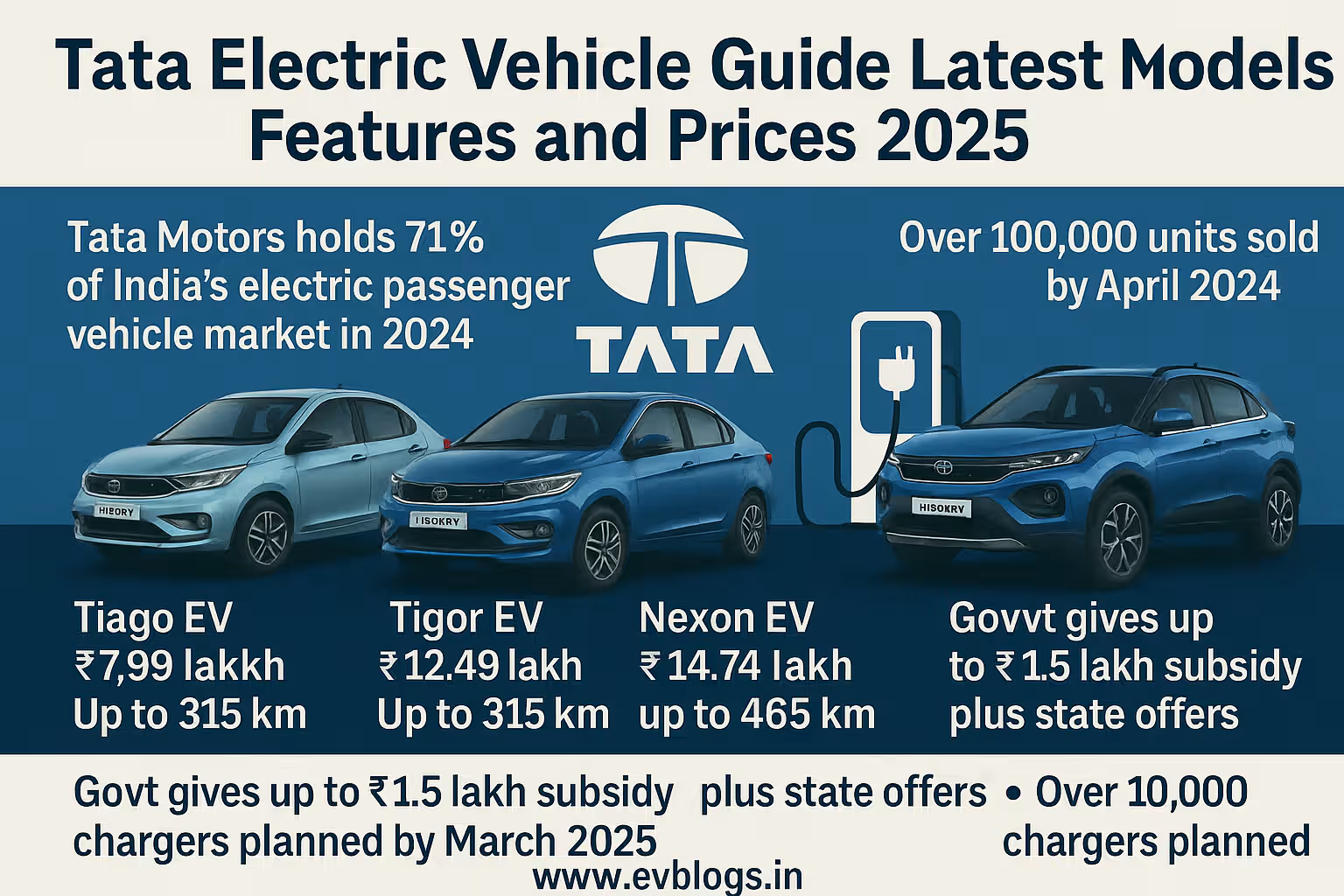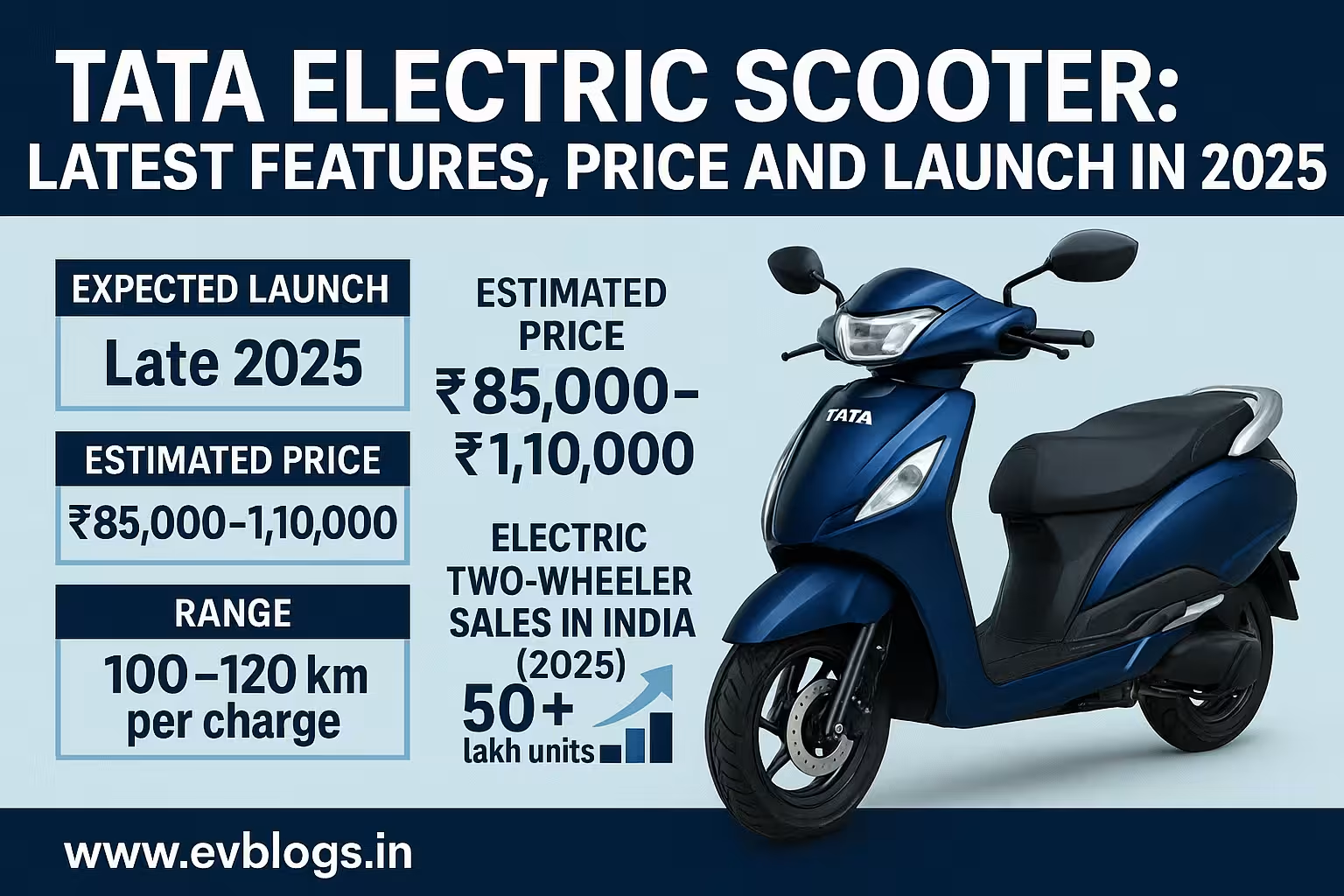Hedhvick Hirav
Hedhvick Hirav is a dedicated EV researcher and editor with over 4 years of experience in India’s growing electric vehicle ecosystem. Their contributions have been recognized in leading sustainability publications and automotive journals.
Summarize & analyze this article with
Choose an AI assistant and open this article directly:
Tip: if the AI doesn’t fetch the page automatically, paste the article URL manually.

Are Electric Vehicles Exempt from Road Tax? India’s 2025 Guide with Data and Insights
Yes, in most Indian states, electric vehicles are either fully exempt from road tax or offered significant road tax reductions as of 2025. This exemption is part of government efforts to boost eco-friendly mobility and make EVs more affordable for buyers. However, the exact benefit depends on your state policy, vehicle type, and whether it is a private or commercial registration.
Let’s explore what this means for you, which states offer the biggest savings, and how India’s road tax rules are changing for electric vehicles (EVs) in 2025.
Why Does Road Tax Matter for Electric Vehicle Buyers?
Road tax is a one-time fee or periodic charge paid when registering a new vehicle. For petrol and diesel vehicles, this can be as high as 10% to 15% of the vehicle’s cost. For EV buyers, a full or partial exemption can lower upfront costs by thousands or even lakhs of rupees.
What Is the Current Status of Road Tax Exemption for Electric Vehicles in India?
As per the Ministry of Road Transport and Highways (MoRTH) and state transport departments:
- 18+ Indian states have announced full road tax exemption for EVs as of January 2025.
- States like Delhi, Maharashtra, Tamil Nadu, Telangana, UP, and others offer 100% exemption.
- Some states like Karnataka and Kerala give 50%-75% reduction instead of full waiver.
- These policies apply to both two-wheelers and four-wheelers (cars), but commercial registrations may have separate rules.
Quick Reference Table: Road Tax Status for Electric Vehicles by State (2025)
| State | Road Tax Exemption | Applies To | Source/Policy Link |
|---|---|---|---|
| Delhi | 100% | All EVs | Delhi Govt |
| Maharashtra | 100% | All EVs | Maharashtra EV Policy |
| Tamil Nadu | 100% | All EVs | TN Government |
| Karnataka | 50% | All EVs | Transport Dept |
| Kerala | 75% | All EVs | Kerala Motor Vehicles Dept |
| Uttar Pradesh | 100% | All EVs | UP Transport |
| Gujarat | 100% | All EVs | Gujarat Govt |
| West Bengal | 100% | All EVs | WB Transport |
Note: Policies are subject to revision. Always verify with your local RTO.
How Much Can You Save? Real-Life Example
Suppose you buy an electric car worth ₹10 lakh in Delhi (where road tax is waived). If you had bought a petrol car instead:
- Road tax on petrol car: ~10% = ₹1 lakh
- Road tax on electric car: ₹0
Savings: ₹1 lakh instantly
This direct saving makes electric vehicles much more attractive in urban centers.
Why Are States Offering Road Tax Exemptions for Electric Vehicles in 2025?
The government wants to push cleaner transportation because:
- Cities like Delhi and Mumbai face dangerous air quality levels (PM2.5 above WHO safe limits).
- The Union Budget FY25 earmarked ₹7,500 crore for FAME III subsidies supporting faster adoption (Economic Times, Feb 2024).
- India aims for 30% new car sales to be electric by 2030 (NITI Aayog Report, Jan 2024).
Road tax waivers reduce the upfront price shock—a major barrier for Indian buyers.
How Many People Are Using These Benefits? Latest Adoption Trends
According to Statista and Vahan Dashboard (as of March 2025):
Table: India’s Electric Vehicle Registration Growth
| Year | Total Registered EVs (All Types) |
|---|---|
| 2021 | ~3.3 lakh |
| 2022 | ~9.2 lakh |
| 2023 | ~15 lakh |
| 2024 | ~24 lakh |
Sources: Statista India Mobility Market Outlook, Vahan Portal
Growth has been sharpest in Delhi-NCR, Maharashtra, Tamil Nadu, Gujarat due to strong state-level incentives including road tax relief.
Who Should Apply? What Steps Do You Need to Take?
How Do I Claim Road Tax Exemption When Registering My Electric Vehicle?
- Buy an approved electric vehicle from a recognised dealer.
- Submit your purchase invoice and battery details at your local Regional Transport Office (RTO).
- Fill up the registration form mentioning you seek road tax exemption under state policy.
- Attach proof (Aadhaar/PAN), insurance papers, pollution certificate (if needed).
- Pay only other applicable charges such as registration fee or smart card fee.
- Receive your RC book/card showing zero or reduced road tax entry.
For official process guides: check your state’s transport department portal linked above.
Pros & Cons: What Are the Advantages and Drawbacks?
Why Opt for an Electric Vehicle with Road Tax Exemption?
Advantages
- Lower upfront cost compared to petrol/diesel vehicles
- Faster ROI when combined with other subsidies (FAME III)
- Supports cleaner air and low-carbon lifestyle
- Resale value expected to rise as demand increases
Drawbacks
- Not all states offer full exemption; verify before buying
- Some commercial categories might not get full waiver
- Policy changes possible as market matures
What’s Next? Future Outlook & Policy Trends
By mid–2025:
- More states are expected to align with central recommendations on full exemptions.
- Discussions ongoing about extending benefits beyond initial purchase—e.g., recurring discounts on annual taxes.
- As per SIAM estimates (SIAM Report Jan 2025), EV sales may cross 20% market share by end–2025, driven by cost incentives like road tax relief.
Industry analysts predict continued growth if these policies remain stable until at least 2030.
Quick Recap: Key Points & Stats
- In most Indian states in 2025, electric vehicles are exempt from road tax or enjoy significant reductions.
- Over 18+ states offer full waivers, covering both two-wheelers and cars.
- States like Delhi save buyers up to ₹1 lakh on new car registration costs.
- India registered over 24 lakh new electric vehicles by end–2024—a sevenfold jump since FY21.
- Government policies aim for 30% new cars sold being electric by 2030.
People Also Ask
Q1: Are electric scooters also exempt from road tax in India?
Yes, most state policies cover both electric two-wheelers and four-wheelers under their exemptions.
Q2: Will I still have to pay registration charges if I buy an electric car?
Yes, basic registration fees apply but major taxes like road tax are reduced or waived depending on your state.
Q3: Is there any income limit to claim this benefit?
No income ceiling applies; all buyers of eligible EVs can avail the exemption regardless of income group.
Q4: Do commercial electric vehicles get the same benefits?
Many states extend benefits to commercial users but always check specific rules—some require special permits or have different slabs.
Q5: Where can I find the latest list of exempted states?
Visit your state transport department website or check the Vahan Parivahan portal for updated notifications.
Looking to switch to an eco-friendly ride? Check your state’s latest policy online before buying your next vehicle! For more details or personalized advice, contact your local RTO or visit Vahan Parivahan Portal. Make your next drive greener—and pocket friendly!


